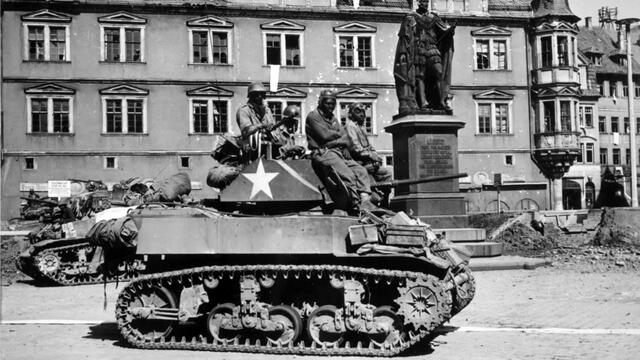Paul Bates ’31
Paul Bates ’31 was an Economics major and member of the ROTC. He became a colonel in the U.S. Army, where he advocated for the 761st Tank Battalion — the Black Panthers — during WWII. In 2007, McDaniel posthumously honored Colonel Bates with the Trustee Alumni Award, and every spring awards the Bates Award to the most outstanding male graduating senior.
